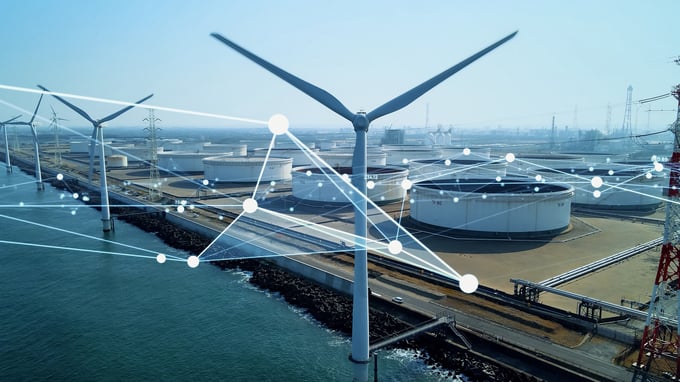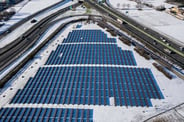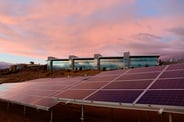Some of the world’s biggest corporate energy users are setting themselves an ambitious new climate goal. While Google’s stated aim is to be “operating on 24/7 carbon free energy by 2030” and Microsoft’s commitment is known as“100/100/0”, they all amount to the same thing: sourcing your electricity from 100% renewable sources, round the clock. So what do you think: can 24/7 clean energy tracking be done?
Many large companies have been working on decarbonising their energy supply for some time, but the 24/7 commitment represents a new level of ambition. Since 2016, Google has been buying enough renewable energy each year to match its annual consumption, but the search giant is aware that this method has its limits: “This achievement involves buying a surplus of renewable energy in regions where solar and wind power are abundant…to address the lack of renewable energy in other places…But it still leaves places and times where our operations rely on fossil fuels.”
There is a growing awareness in the business community that annual reconciliation is a poor tool for decarbonising energy supply. Big brands such as IKEA, Microsoft and Amazon have joined the RE-Source task force and thrown their weight behind calls for energy matching in much closer to real time. ENTRNCE is proud to sit on the task force alongside many pioneers from the business world, and endorses the goal in the RE-Source October 2021 white paper: “Matching a given volume of electricity demand with an equivalent volume of [renewably generated electricity] that is generated at the same time…with a time stamp of one hour or less.”
Clean energy tracking from Microsoft to Mercedes
Microsoft is one of the first companies to successfully match energy consumption to renewable generation with this level of granularity. The energy powering its data centre in Sweden is certified renewable by Guarantees of Origin on an hourly basis. It also has a pilot project at another data centre in Amsterdam where it will monitor how effective its corporate power purchase agreement is at decarbonising its supply – again, by measuring every hour. This data is key to realising its 100/100/0 ambition: 100% of its electricity consumption, 100% of the time, generating zero carbon.
There is no “one size fits all” solution for corporates seeking a greener energy supply. In Germany, Mercedes-Benz is working with retailer Enovos and generator Statkraft to secure a 100% renewable energy supply from a mix of solar, wind and hydro. The use of hydropower as a natural battery seems to be one of the key tools for Mercedes-Benz to manage the intermittency of renewables.
But the most important tool, and the one shared by all corporates seeking to decarbonise, is access to granular energy data. Mercedes-Benz is one of many to publicly announce that annual reconciliation is no longer working for them, and the new deal with Enovos is designed to guarantee a green supply to the grid on a quarter-hourly basis.
Huge opportunity for retailers
Meanwhile, Google’s ambition is so great that when it announced its clean energy goal in September 2020, the energy solution didn’t exist yet. Now it has partnered with power distribution company AES to pilot a solution at its Virginia data centre, which has so far achieved carbon-free energy for 90% of the time.
It’s time for retailers to recognise the huge opportunity that this level of ambition represents and to offer clients what they need: transparent data on consumption and generation and energy-matching solutions.
That's why we organised a webinar for retailers about how hourly matching improves transparency. Download the recording below and watch it at your convenience.




